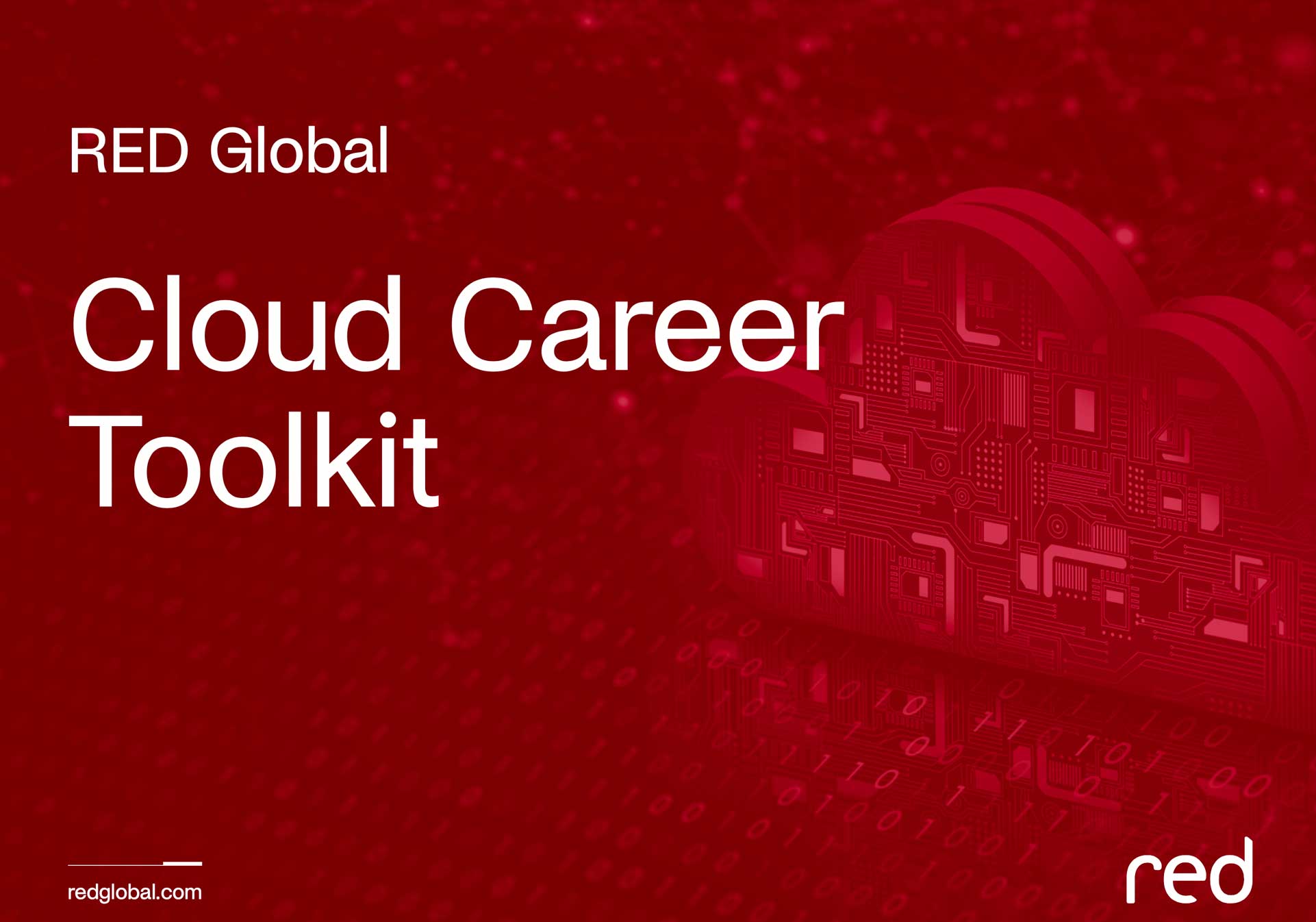10 cloud interview questions and how to answer them.
Blog post
 Since the COVID-19 pandemic, cloud computing software transitioned from a “nice to have” to a “must have” for modern organisations.
Since the COVID-19 pandemic, cloud computing software transitioned from a “nice to have” to a “must have” for modern organisations.
With more and more companies continuing to operate a remote working environment, the demand for cloud computing talent isn’t going to slow down anytime soon.
So if you have completed the necessary training to apply for cloud jobs, then you’re already in a fantastic position. But with many cloud professionals competing for similar roles, how do you stand out from the crowd?
In this interview questions and answers guide, we’re taking you through the most commonly asked interview questions for cloud roles and giving you our experience-backed advice on how to answer them.
With our expert guidance, you’ll feel more confident walking into your cloud interview, knowing you’re armed with the best answers to land the job. Let’s get started.
The cloud interview questions you need to prep for.
We asked our cloud recruitment consultants what questions come up time and time again for the most sought-after cloud roles. Below you’ll find the top 10 most common cloud interview questions, according to our experts, to give you a competitive edge.
Can you describe the distributed cloud?
To kick these cloud interview questions off, let’s begin with a technical question we see interviewers ask all the time to make sure you fully understand the different facets of cloud computing technology.
How to answer this interview question
Describe the distributed cloud (when public cloud solutions are spread across several physical locations) and how the purpose of the distributed cloud is to make sure the user is staying compliant and meeting performance goals.
Can you describe the multi-cloud?
Another technical cloud interview question your potential employer might ask you is to do with multi-cloud computing. With this question, they want to see that you understand the difference between multi-cloud and other forms of cloud computing.
How to answer this interview question
To answer this question comprehensively, we suggest researching different use cases for and benefits of a multi-cloud approach. For the most part, multi-cloud computing is when organisations will deliberately invest in several cloud vendors for the same cloud services.
What does cloud-native mean?
Again, this cloud interview question allows you to prove to your interviewer that you have a well-rounded comprehension of cloud computing and all its approaches, uses, solutions, and bases.
How to answer this interview question
Cloud-native computing is a hot topic for interviewers. To answer this question well, describe what cloud-native computing is (a cloud-native product is something developed specifically to take advantage of cloud features).
Can you describe what edge computing is?
This interview question is asking you to explain another complex technological term. This time, it’s edge computing. Your interviewer may also ask you how edge computing relates to cloud computing.
How to answer this interview question
First of all, tell your interviewer what edge computing is in simple terms (edge computing is related to a physical location, etc.) and then describe the connection between cloud computing and edge computing. Talk about ways that they complement each other.
What are some features of the cloud?
Your interviewer may want to uncover your general view on cloud computing, how passionate you are about it, and the benefits it brings to today's corporations. So think about some of your favourite cloud features and talk about them!
How to answer this interview question
Talk about the best features of cloud computing, like the quality service that cloud computing and cloud vendors provide to organisations, the flexibility & adaptability of cloud solutions, and how easy cloud computing is to maintain.
What cloud service models are there?
Cloud computing comes in the form of three different cloud services. Every cloud service has its own purpose, benefits, and features. Your interviewer wants to test your knowledge of the different cloud capabilities with this question, so do your research beforehand!!
How to answer this interview question
Describe each cloud service model to your interviewer in your own words and show off your knowledge of each, namely, SaaS, PaaS, and IaaS. Make sure you bring each description back to how each service can directly benefit your potential employer’s business.
How does hybrid cloud compare to hybrid IT?
You’d be surprised how many cloud computing applicants stumble on this interview question. If you’re still in university or newly certified in cloud computing, you might get hybrid cloud and hybrid IT mixed. Make sure you show your interviewer you know your stuff.
How to answer this interview question
Give a description of both hybrid cloud and hybrid IT in plain English first. Then go on to talk about the main differences between them, i.e., hybrid cloud is the integration between public and private clouds, whereas hybrid IT is the outcome of companies integrating traditional IT systems with the cloud.
How would you describe hybrid cloud computing?
This cloud interview question might seem simple on the surface. But what your interviewer is trying to figure out here is whether you comprehensively understand what hybrid cloud computing is.
How to answer this interview question
Make sure you prepare thoroughly for this interview question by understanding hybrid cloud from a holistic perspective. Talk about its purpose, uses, capabilities, and benefits for the average business. Describe how it connects private and public cloud services and why.
What are the benefits of cloud software?
Your potential employer wants to know that you not only understand the technical advantages of cloud computing but can also see its strategic strengths. This question is all about testing that you understand their business goals and how the cloud aligns with them.
How to answer this interview question
Discuss how the cloud enables businesses to tap into a wider range of global software services to increase productivity and improve operational efficiency. Also mention how the cloud reduces business risks by storing data safely offsite and enhances web server capabilities.
Describe packaged hybrid cloud solutions.
In this popular cloud interview question, your employer is trying to assess your knowledge of packaged cloud solutions and how you can potentially use them to improve their business and help them meet their strategic goals.
How to answer this interview question
You can discuss many packaged offerings, from Microsoft's Azure Stack to SAP's S/4 HANA solutions. Also, don't forget to explain the difference between "like-for-like" and "layered" hybrid cloud approaches.
Let our cloud recruiters help you navigate your cloud career.
Many senior cloud architects are making over £100,000! So even if you're new to cloud computing, it's undoubtedly a career path worth pursuing.
You could take many directions in this industry, but with the right recruitment consultant by your side, you can make sure you're stepping in the right direction.
Our consultants know how to kickstart long-lasting cloud careers with solid ties to the world's leading cloud computing companies, unrivaled knowledge of cloud technologies, and insights into what employers want.
Register with RED to get started.
Your Cloud Career Toolkit
Resources
Finding your dream job and navigating your way through a successful career can be challenging.
When it comes to finding a cloud job and dealing with the challenges that may arise in your cloud career, we’ve got the expertise to ensure your success.
In this Cloud Career Toolkit, we'll explore the exciting world of cloud computing and show you how to take the first steps towards a rewarding career in this dynamic field.
If you have any feedback about the toolkit, we'd love to hear from you.
To download our free Cloud Career Toolkit, fill out the form and click 'download'.




